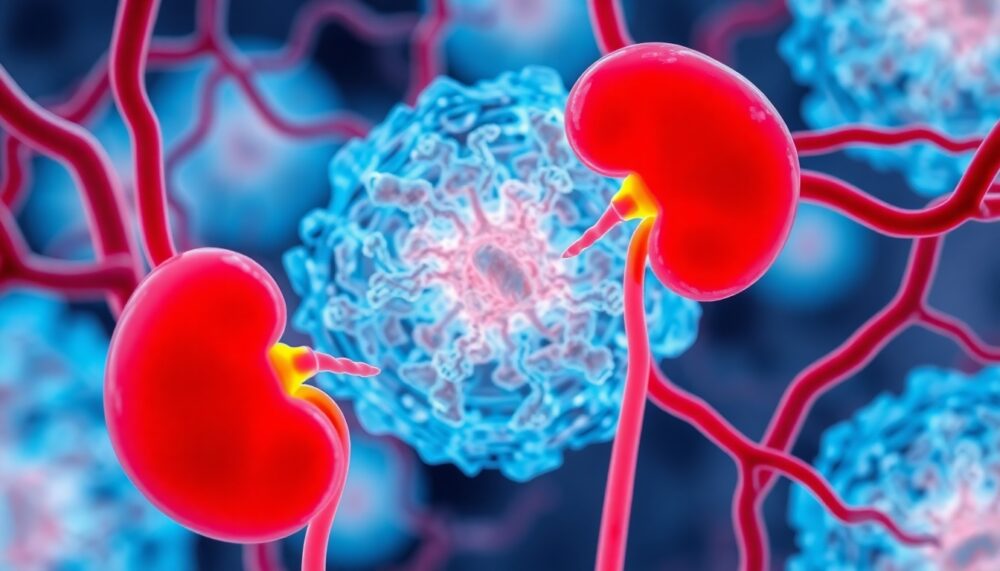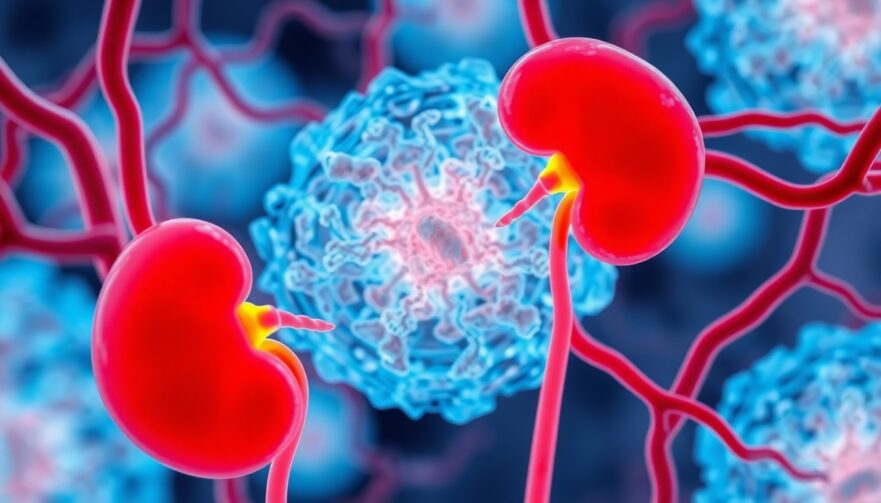
If you’re one of the millions of people managing high blood pressure with medication, new research from the University of Virginia offers some important food for thought. A recent study suggests that some of the most commonly prescribed drugs to control hypertension, while often lifesaving, could have unintended consequences for your kidneys over the long term. This discovery doesn’t mean you should stop your treatment, but it does highlight the need for a more personalized approach to managing this widespread condition.
Key Takeaways
- A new study found that long-term use of certain blood pressure medications, like ACE inhibitors, may cause harmful changes in the kidneys.
- The issue involves specialized kidney cells, called renin cells, which can cause blood vessels to thicken and stiffen over time.
- Researchers strongly advise that you should not stop taking your medication, as these drugs are crucial for preventing heart attacks and strokes.
- The findings emphasize the need for regular check-ups and a collaborative approach with your doctor to monitor kidney health during treatment.
What Did the New Research Discover?

Led by Dr. Maria Luisa Sequeira Lopez, a team at the University of Virginia School of Medicine took a closer look at how certain blood pressure drugs affect the kidneys. Their research focused on a specific type of kidney cell called a renin cell. These cells are vital for regulating your blood pressure. The study, published in JCI Insight, revealed that long-term use of medications like ACE inhibitors and angiotensin receptor blockers can cause these renin cells to undergo a troubling transformation. They begin to invade the walls of the kidney’s blood vessels, causing them to thicken and harden. This process could ultimately lead to reduced kidney function.
Should You Be Worried About Your Medication?
In a word, no. The researchers are clear that these findings are not a signal to stop your prescribed treatment. The benefits of controlling high blood pressure—a condition known as the ‘silent killer’—far outweigh the potential risks identified in this early-stage research. These medications are proven to be effective at preventing life-threatening events like heart disease and stroke. Instead, this study serves as a crucial reminder for both patients and doctors to think about the long-term picture. It suggests that treatment plans should be personalized and may need to evolve over time, with a careful eye on how the medications are affecting your body as a whole, including your kidneys.
How to Proactively Manage Your Blood Pressure

This research underscores the importance of being an active participant in your own healthcare. Since high blood pressure often has no symptoms, regular monitoring is key. Using a home blood pressure monitor can help you and your doctor track your numbers and catch any issues early. Beyond medication, lifestyle choices play a huge role. A healthy diet, regular physical activity, and effective stress management can significantly improve your blood pressure. The best strategy is to work closely with your healthcare provider to create a comprehensive plan that combines smart medication use with healthy habits, ensuring your treatment is both effective and safe for the long haul.
Conclusion
Treating high blood pressure is more complex than just lowering a number. This new study opens the door to a more nuanced understanding of how common medications work in the body over many years. It’s a call for more research to develop even safer treatments and for a stronger partnership between you and your doctor to create a personalized plan that protects not just your heart, but your kidneys too.
Scientific References
- Gomez, R. A., et al. (2024). Maladaptive remodeling of the kidney’s renin-producing cells in chronic hypertension. JCI Insight. URL: https://insight.jci.org/articles/view/177263

